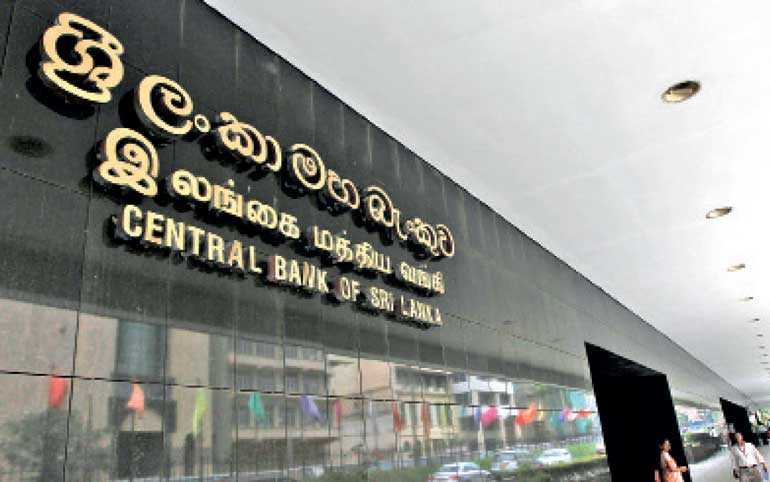Friday Feb 20, 2026
Friday Feb 20, 2026
Monday, 28 December 2020 00:00 - - {{hitsCtrl.values.hits}}

The Central Bank of Sri Lanka and the Government has a great responsibility to, at this critical stage, work with organisations to protect the country’s banking and financial sector, the reason being that, if this sector collapses now, the whole country will subside into a web of chaos
Global economies, including Sri Lanka, have significantly fallen due to the COVID-19 pandemic, and all social groups including governments, professionals and the general public have been crippled in face of  this novel pandemic. At such a point in time, the collapse of a country’s banking and financial sector is extremely hazardous, proving disastrous for some countries who, during the COVID-19 pandemic have allowed these industries to fail, prompting government to rebuild the banking and financial industries.
this novel pandemic. At such a point in time, the collapse of a country’s banking and financial sector is extremely hazardous, proving disastrous for some countries who, during the COVID-19 pandemic have allowed these industries to fail, prompting government to rebuild the banking and financial industries.
For Sri Lanka, our banking and financial sector has been robust throughout history and maintained its role as a pillar of strength to our nation, surviving the 30-year war, the 1989- 1990 uprising and consequent hindrances to our country’s prosperity.
The entirety of 24 government and private sector banks in Sri Lanka cannot satisfy all the financial needs of Sri Lanka’s population (especially socio-economic groups that cannot fulfil the requirements of banks), with most of the general public preferring non-bank financial institutions (registered with the Central Bank of Sri Lanka) providing higher interest rates to their depositors and loan/leasing facilities to customers with minimal security, as opposed to banks who usually offer relatively low interest rates on savings to the public and demand higher protection from customers when granting loans and leasing.
Under this background, non-bank financial institutions registered with the Central Bank of Sri Lanka (totalling 39 institutions) play a vital role in fulfilling the financial needs of the people of Sri Lanka. These registered financial companies (RFCs) governed by the Finance Business Act No. 42 of 2011, under the supervision and control of CB, should be supported to aid the country and its people, especially in times of this essence.
In recent years however, under the influence of the now worldwide pandemic, they have taken a hit as a result of poor management and the spread of false propaganda from time to time throughout social media conjecturing the impending collapse of financial institutions. Similarly, the monthly loan and lease instalment payments of banks and financial institutions have dropped drastically. Simultaneously, the nonperforming loan ratio of banks have risen to over 4%, while that of non-bank financial institutions is around 11% – resulting from accumulated moratoriums and non-payments. This amount is in billions.
Registered (non-bank) financial institutions (RFCs)
The lower- and middle-class people of the country deal with non-bank financial institutions. They accommodate 62% of Sri Lanka’s workforce who are unwelcomed by reputable banks and have provided them with financial facilities of around Rs. 1 trillion (the assets of RFCs being around Rs. 1.5 trillion). So, they perform the unpredictable business of catering to the majority of borderline, non-bankable, high-risk entrees to the market, mostly originating from rural/suburban areas and if not for RFCs, many of our well-known companies today would not exist.
Banks and non-banks cater different portions of society with different strategies – so they cannot be compared. It has been predicted that non-banks may overtake banks as they operate on emotional intelligence which they in turn operate on human intervention. They pay 15 billion corporate taxes and cater to seven million people – this is 50% of the active population aged 18-70, one million micro companies (10 or less workers) – this is 44% of labour force in the country and 70,000 SMEs employing 17% of the labour force in Sri Lanka.
Non-banking financial institutions should be commended on the fact that, with income reduced to 75% and the combined threats from the Easter attacks and COVID-19, they have continued to pay depositors and employees and still proceed to run well. Some countries had to pump billions in these situations yet our Government did not have to do this. At such a juncture, the type of paper article as the one published on 14 October including a list of nine registered nonbank financial institutions with low core capital should not be published which increase public fear and worsen the situation for all parties.
In this particular case, customers of the relevant financial institutions began to withdraw their deposits. If a large number of customers withdraw deposits from any bank or financial institution at once, naturally it will be difficult to maintain that institution. The Central Bank of Sri Lanka and the Government has a great responsibility to, at this critical stage, work with organisations to protect the country’s banking and financial sector, the reason being that, if this sector collapses now, the whole country will subside into a web of chaos.
Therefore, it is highly unjust that in the absence of a level-playing field, with collective tragedies (COVID being the largest humanitarian crisis after WW2) and with unpopular opinions stacked against them, that these institutions continue to suffer attacks while striving to provide such a risky and un-provided service to the country. The focus here is misdirected to RFCs when the real danger lies within the numerous non-registered financial institutions which relevant regulatory bodies should chase behind to ensure safety.
(The writer is a qualified Engineer counting over 35 years of experience in civil engineering, Lecturer and former Director of two leading banks in the country. He had held chairmanships/directorships in many major corporations and financial institutions in Sri Lanka. He holds a PhD in Management and an MBA from the Sussex University (UK). A Civil Engineering Graduate and Advanced Diploma holder in HIET (Chennai – India), is a Fellow of the International Institute of Management (HK) and a Fellow of the Ceylon Institute of Builders.)